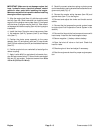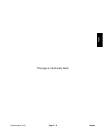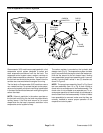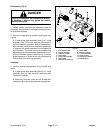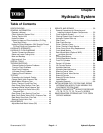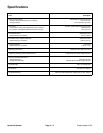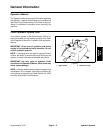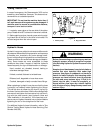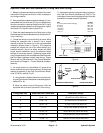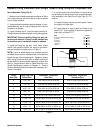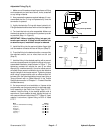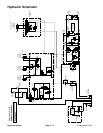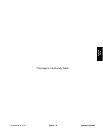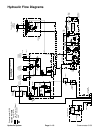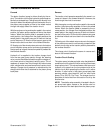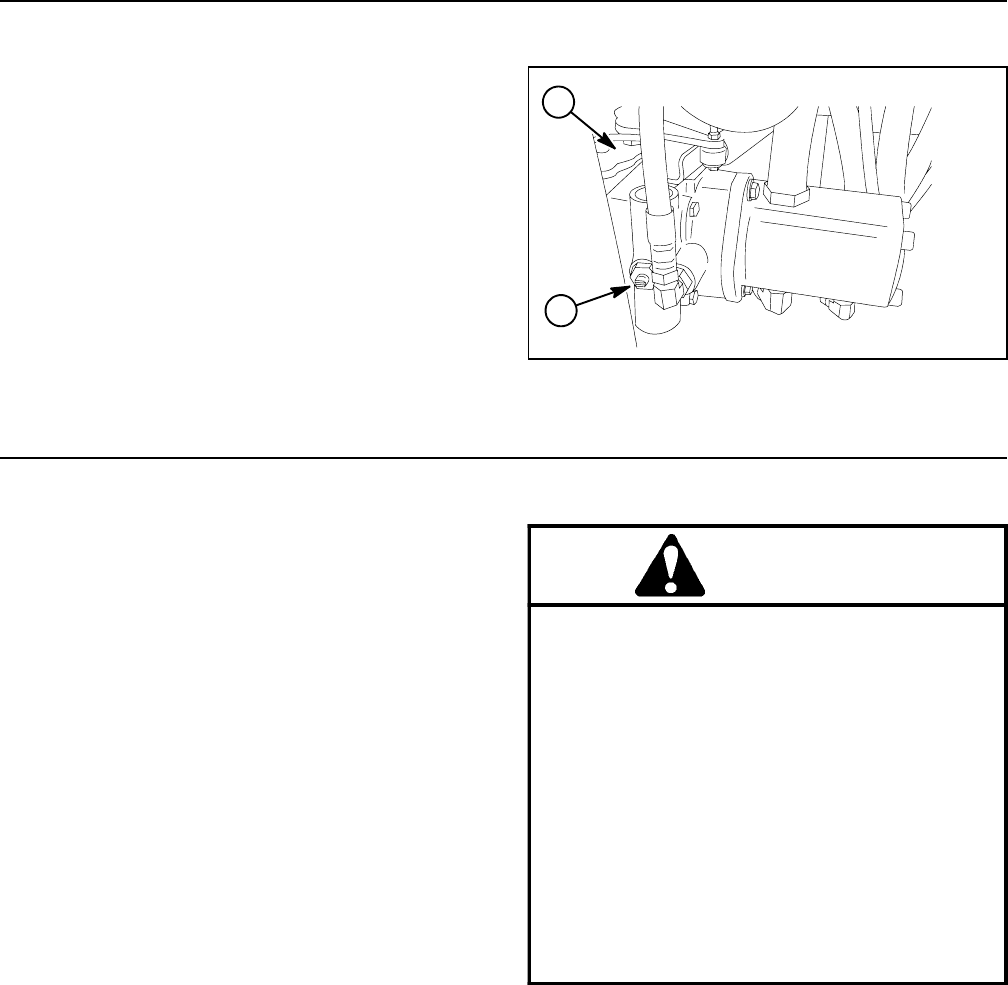
Greensmaster 3150Hydraulic System Page 4 -- 4
Towing Traction Unit
In case of emergency, the Greensmaster 3150 can be
towed for a short distance. However, Toro does not rec-
ommend this as a standard practice.
IMPORTANT: Do not tow the machine faster than 2
to 3 mph because drive system may be damaged. If
machine must be moved a considerable distance,
transport it on a truck or trailer.
1. Locate by--pass valve on the rear side of the piston
pump.Rotate valve 90
o
sotheslotinthevalveisvertical.
2. Before starting engine, close by--pass valve by rotat-
ing it back 90
o
so the slot in the valve is horizontal. Do
not start engine when the valve is open.
1. Piston pump 2. By--pass valve
Figure 2
2
1
Hydraulic Hoses
Hydraulic hoses are subject to extreme conditions such
as pressure differentials during operation and exposure
to weather, sun, chemicals, very warm storage condi-
tions or mishandling during operation and maintenance.
These conditions can cau se hose damage and deterio-
ration. Some hoses are more susceptible to these
conditions than others. Inspect all machine hydraulic
hoses frequently for signs of deterioration or damage:
Hard, cracked, cut, abraded, charred, leaking or
otherwise damaged hose.
Kinked, crushed, flattened or twisted hose.
Blistered, soft, degraded or loose hose cover.
Cracked, damaged or badly corroded hose fittings.
When replacing a hydraulic hose, be sure that t he hose
is straight (not twisted) before tightening the fittings.
This can be done by observing the imprint (layline) on
the hose. Use two wrenches; hold the hose straight with
one wrench and tighten the hose swivel nut onto the fit-
ting with the other wrench (see Hydraulic Hose and
Tube Installation in this section). If the hose has an el-
bow at one end, tighten the swivel nut on that end before
tightening the nut on the straight end of the hose.
For additional hydraulic hose information, refer to Toro
Service Training Book, Hydraulic Hose Servicing (Part
Number 94813SL).
WARNING
Before disconnecting or performing any work on
hydraulic system, relieve all pressure in system
(see Relieving Hydraulic System Pressure in this
section).
Keepbodyandhands awayfrompin hole leaksor
nozzles that eject hydraulic fluid under high
pressure. Use paper or cardboard, not hands, to
search for leaks. Hydraulic fluid escaping under
pressure can have sufficient force to penetrate
the skin and cause serious injury. If fluid is in-
jected into the skin, it must be surgically re-
moved within a few hours by a doctor familiar
with thistype ofin jury. Gangrene may resultfrom
such an injury.



